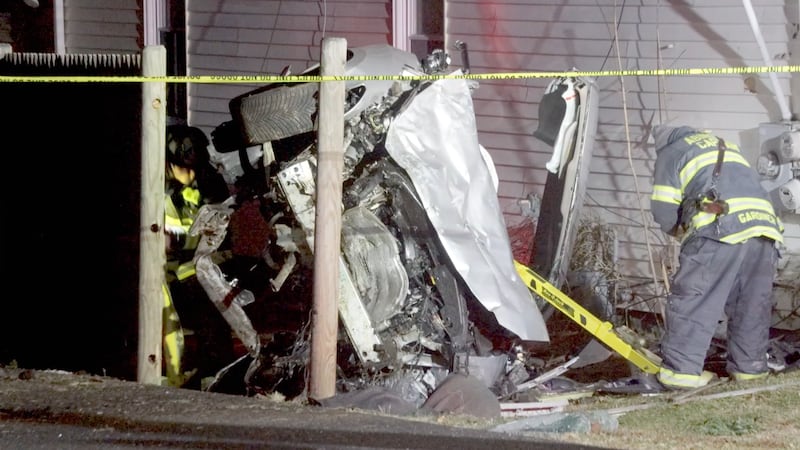DOVER, Mass. — A Dover family is among more than two dozen families nationwide who are part of a wrongful death lawsuit filed against the social media app Snapchat for its role in facilitating drug sales that resulted in the 2019 death of their son.
Zach Parsons, 21, of Dover died on April 9, 2019 after ingesting a counterfeit Percocet from a drug dealer to whom Snapchat connected him, which turned out to be pure fentanyl, according to the Social Media Victims Law Center.
The Social Media Victims Law Center filed the lawsuit against Snap, Inc. on behalf of the families of 27 minors and young adults across 13 states who died after buying narcotics from drug dealers connected to them on the Snapchat platform. In all but one case, the drugs being distributed on Snapchat were counterfeit pills containing lethal amounts of fentanyl, the Social Media Victims Law Center said.
The suit alleges that Snapchat’s disappearing messages, “My Eyes Only” and “Snap Map” features, among others unique to Snapchat, “encourage, enable, and facilitate the existence of a deadly ‘Snapchat Drug Cartel’ that uses the social media platform for illicit sale of illegal drugs, most of which are counterfeit and contain lethal doses of fentanyl.”
The lawsuit, which was filed in Superior Court of Los Angeles, is the sixth wrongful death lawsuit over the last six months against Snapchat on behalf of 62 individuals across 22 states “who have died or suffered immeasurable harms because of Snapchat drug dealers and the rampant and open distribution activities taking place on Snapchat,” the Social Media Victims Law Center said.
The lawsuit also alleges that Snapchat has created a safe haven for drug dealers to operate as a “Snapchat Drug Cartel” with a steady source of vulnerable customers, and that the popular app “purposefully obstructs parental supervision and creates unhealthy social media addictions by design.”
“Snapchat enables dealers to locate and access nearby minors and young adults, affirmatively connects them to these young clients and the posting and exchange of drug menus and other information that disappear within 24 hours – erasing all evidence of the crime,” the Social Media Victims Law Center said.
25 investigates first reported in November that cartels and dealers are making pills that look just like popular prescription drugs only theirs are laced with deadly amounts of fentanyl.
“Snapchat has become engrained as the virtual street corner for drug sales in local communities throughout the country,” Matthew Bergman, founding attorney of the Social Media Victims Law Center, said in a statement on Wednesday. “It’s disappearing messages, “My Eyes Only” and “Snap Map” features have created a virtual ‘Snapchat Drug Cartel’ that is reaching into the homes of millions of minors and young adults across the country. Snapchat needs to be held accountable for its role in helping with the open and illicit sales of drugs, and for protecting drug dealers who are killing our young people.”
Zach Parsons’ family is among 27 other families nationwide who are part of the wrongful death lawsuit. The teenagers and young adults who died ranged from 15 to 21 and were from several states including Arizona, California, Colorado, Iowa, Kansas, Nebraska, New Mexico, Nevada, North Carolina, Oklahoma, Texas, and Washington.
The Social Media Victims Law Center and his family described Zach Parsons of Dover as “a sweet, outgoing, and happy child.”
“As he grew older, he loved being the center of attention, in the best possible way, and could keep a room bright and filled with laughter,” the Social Media Victims Law Center said. “His passions consisted of intense workouts, selfless smiles, and indulging in any and everything in sight. He lit up every room he entered and was loved by all who knew him.”
“Zach was 11 years old when he received his first cell phone and shortly afterwards, opened his Snapchat account without his mother Andrea’s knowledge or permission,” the Social Media Victims Law Center said.
“Snapchat began targeting Zach with drug-related content and connected him to local Snapchat drug dealers. By high school, Zach was using Xanax distributed by the drug dealers to whom Snapchat connected him. His parents sent him to various in-patient treatment centers to help and at the start of 2019 he seemed to be doing better,” the Social Media Victims Law Center said.
Zach was a passenger when he was involved in car accident in March 2019, and began suffering from recurring headaches, the Social Media Victims Law Center said. The following month, in April, he bought counterfeit Percocet from a drug dealer to whom Snapchat connected him, which turned out to be pure fentanyl.
The early morning of April 9, 2019, family members at Zach’s home woke up and heard the shower running, rushed to the bathroom and pounded on the door, but there was no response. They kicked in the door and found Zach on the bathroom floor, the Social Media Victims Law Center said.
Police later found a pill in a tin in Zach’s room, and the pill had been pressed to look like Percocet, but testing later showed it was pure fentanyl.
“Zach’s blood work confirmed that he had enough fentanyl in his system to kill several grown men,” the Social Media Victims Law Center said.
Founded in 2021, the Social Media Victims Law Center aims to “hold social media companies legally accountable for the harm they inflict on vulnerable users,” according to its website.
Download the FREE Boston 25 News app for breaking news alerts.
Follow Boston 25 News on Facebook and Twitter. | Watch Boston 25 News NOW
©2023 Cox Media Group







